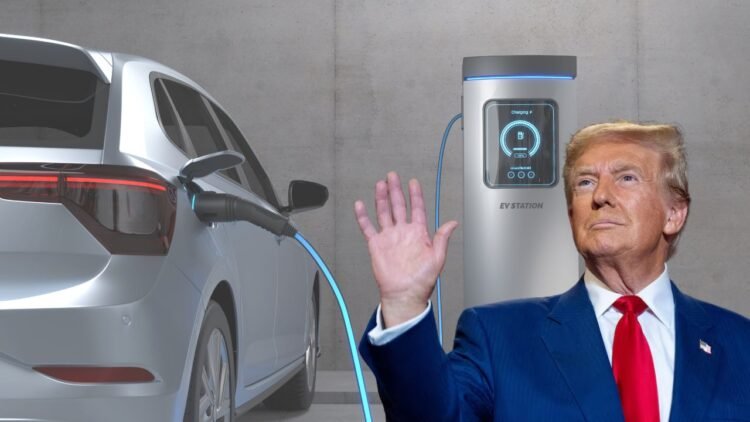Starting October 1, 2025, a new Alternative Fuel Vehicle (AFV) fee will apply to owners of electric and hybrid vehicles in Delaware. The highest tier of this fee reaches $900 annually for heavier commercial EVs.
Lawmakers argue that this move ensures fairness since EV drivers contribute little or nothing to fuel taxes, which fund road repairs. However, critics are calling it unfair and hypocritical, especially since the state is also pushing policies to increase EV adoption.
Why the EV Fee Was Introduced
Electric and hybrid cars consume little or no gasoline, which means they avoid paying traditional gasoline taxes that fund road construction and maintenance.
To address this gap, Delaware passed House Bill 164, creating a tiered annual EV fee. According to officials, this ensures all drivers contribute their fair share toward maintaining infrastructure.
Breakdown of the New EV Fees
The Delaware Division of Motor Vehicles (DMV) has already begun notifying EV and hybrid owners by mail. Payments will be due by November 1, 2025.
| Vehicle Type | Annual Fee |
|---|---|
| Electric Motorcycles | $15 |
| Passenger EVs under 6,000 pounds | $110 |
| Hybrid passenger vehicles | $60–$90 |
| Medium-duty EVs (6,000–26,000 pounds) | $150–$450 |
| Heavy-duty EVs over 26,000 pounds | $900 |
The DMV has also warned that failing to pay on time will result in late penalties.
Impact on Delaware Drivers
For most ordinary EV drivers, the new fee will range between $60 and $150 annually, depending on the weight of the vehicle. While not extreme, many feel the costs add up alongside higher insurance rates, repair expenses, and charging challenges. For commercial fleets and heavy EV trucks, the $900 fee represents a significant expense.
Critics Call It Hypocrisy
Many Delaware residents argue that this policy contradicts the state’s push for zero-emission vehicles. Under the Advanced Clean Car Regulation, automakers must boost EV sales to 43% by 2027 and 82% by 2032. Drivers say it is contradictory to incentivize EVs with tax credits while penalizing them with annual fees.
National Trend Against EV Drivers
Delaware is not alone. At least 41 states have now enacted additional EV registration fees. While some states still offer federal and state tax credits, others are balancing incentives with fees to offset declining gas tax revenue. This marks a national shift, where EV owners are increasingly paying new charges after years of government subsidies.
How to Avoid Penalties
- Pay on time: All fees must be settled by November 1, 2025, to avoid late fines.
- Sign up for DMV eNotifications: This ensures you receive billing reminders electronically.
- Confirm your vehicle category: Heavier vehicles are charged more, so check your official DMV classification.
For assistance, Delaware drivers can call 302-744-2500 or email.
The new $900 EV fee in Delaware highlights the shifting landscape of electric vehicle ownership. While lawmakers see it as a fair solution to road funding, many drivers see it as a penalty for going green.
With 41 states already adopting similar fees, this marks the end of the incentive-driven era of EV adoption. Going forward, EV owners will need to plan for higher registration costs, insurance, and maintenance—making ownership decisions more complex.
FAQs
When does the new EV fee take effect?
The new EV and hybrid vehicle fee begins October 1, 2025, with payments due by November 1, 2025.
How much will the average driver pay?
Most drivers of passenger EVs and hybrids will pay between $60 and $150 annually, while heavy-duty EVs may owe up to $900.
Why are EVs being charged extra fees?
Since EV owners use little or no gas, they do not contribute to gasoline tax revenues that fund road maintenance. The new fees ensure all drivers share costs fairly.

